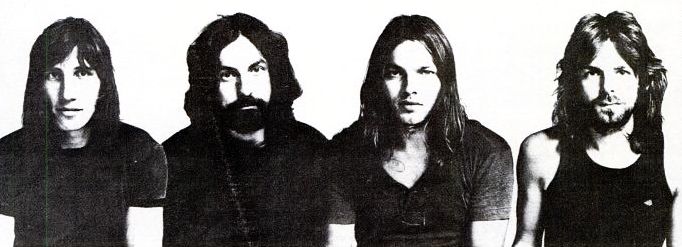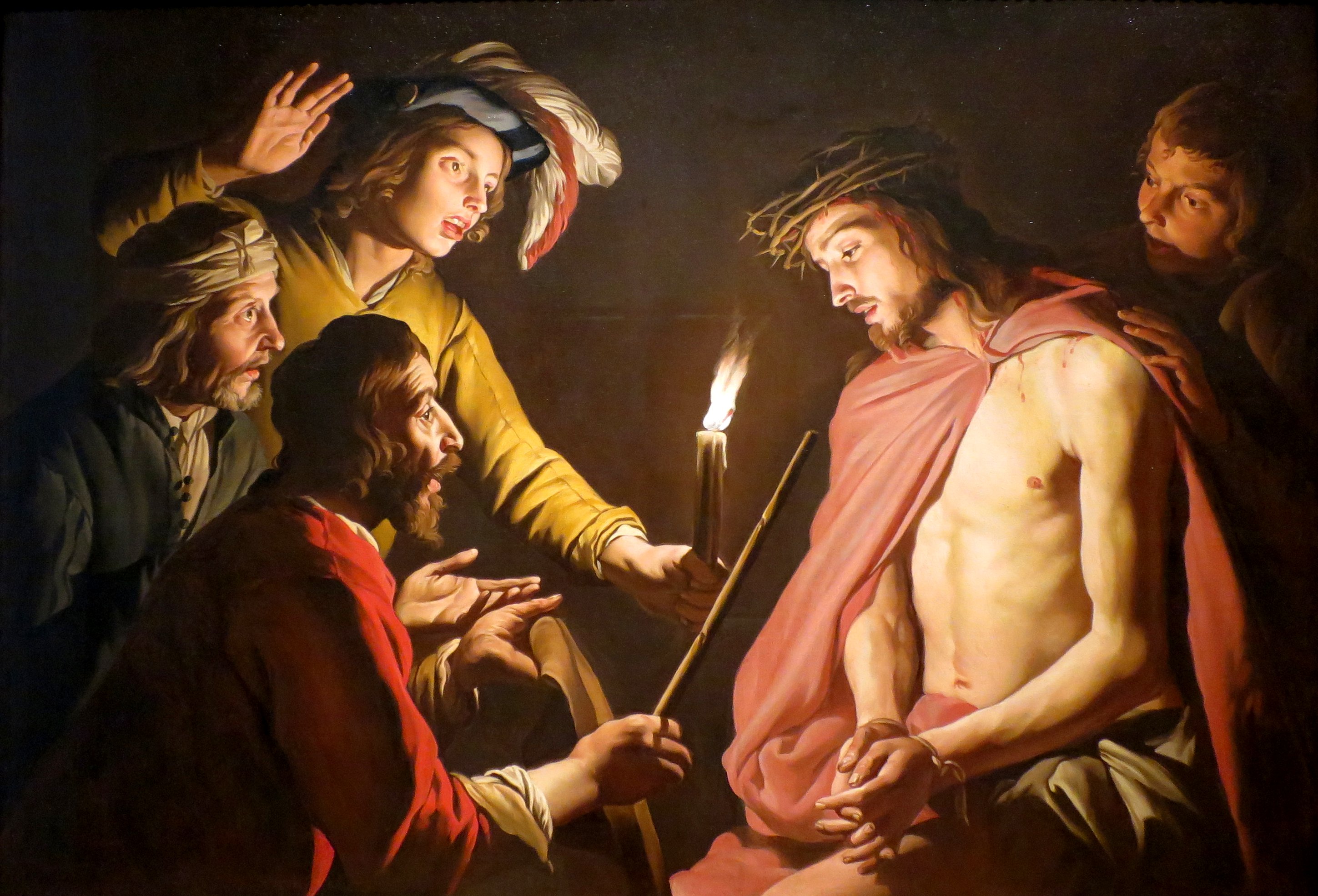|
A Passion Play
''A Passion Play'' is the sixth studio album by British progressive rock band Jethro Tull, released in July 1973 in both the UK and US. Following in the same style as the band's previous album ''Thick as a Brick'' (1972), ''A Passion Play'' is a concept album comprising individual songs arranged into a single continuous piece of music (which was split into two parts across the original vinyl release's two sides). The album's concept follows the spiritual journey of a recently deceased man (Ronnie Pilgrim) in the afterlife, exploring themes of morality, religion and good and evil. The album's accompanying tour was considered the high water mark of Jethro Tull's elaborate stage productions, involving a full performance of the album accompanied by physical props, sketches and projected video. ''A Passion Play'' was negatively received by critics upon its initial release. However, the album was a commercial success, becoming Jethro Tull's second number one album in the United State ... [...More Info...] [...Related Items...] OR: [Wikipedia] [Google] [Baidu] |
Jethro Tull (band)
Jethro Tull are a British rock band formed in Blackpool, England, in 1967. Initially playing blues rock and jazz fusion, the band soon incorporated elements of English folk, hard rock, and classical music, forging a signature progressive rock sound. The group’s bandleader, founder, primary composer, and only constant member is Ian Anderson, a multi-instrumentalist who mainly plays flute and acoustic guitar, and is also the lead vocalist. The group has featured a revolving door of musicians throughout the decades, including significant contributors such as electric guitarist Martin Barre (the longest serving member besides Anderson), keyboardists John Evan, Dee Palmer, Peter-John Vettese, and Andrew Giddings, drummers Clive Bunker, Barrie "Barriemore" Barlow, and Doane Perry, and bassists Glenn Cornick, Jeffrey Hammond, John Glascock, Dave Pegg, and Jonathan Noyce. After achieving moderate recognition performing in the London club scene, the band released their debut album ... [...More Info...] [...Related Items...] OR: [Wikipedia] [Google] [Baidu] |
Pink Floyd
Pink Floyd are an English rock band formed in London in 1965. Gaining an early following as one of the first British psychedelic music, psychedelic groups, they were distinguished by their extended compositions, sonic experimentation, philosophical lyrics and elaborate Pink Floyd live performances, live shows. They became a leading band of the progressive rock genre, cited by some as the greatest progressive rock band of all time. Pink Floyd were founded in 1965 by Syd Barrett (guitar, lead vocals), Nick Mason (drums), Roger Waters (bass guitar, vocals), and Richard Wright (musician), Richard Wright (keyboards, vocals). Under Barrett's leadership, they released two charting singles and the successful debut album ''The Piper at the Gates of Dawn'' (1967). Guitarist and vocalist David Gilmour joined in December 1967; Barrett left in April 1968 due to deteriorating mental health. Waters became the primary lyricist and thematic leader, devising the concept album, concepts behind ... [...More Info...] [...Related Items...] OR: [Wikipedia] [Google] [Baidu] |
Irony
Irony (), in its broadest sense, is the juxtaposition of what on the surface appears to be the case and what is actually the case or to be expected; it is an important rhetorical device and literary technique. Irony can be categorized into different types, including ''verbal irony'', ''dramatic irony'', and ''situational irony''. Verbal, dramatic, and situational irony are often used for emphasis in the assertion of a truth. The ironic form of simile, used in sarcasm, and some forms of litotes can emphasize one's meaning by the deliberate use of language which states the opposite of the truth, denies the contrary of the truth, or drastically and obviously understates a factual connection. Definitions Henry Watson Fowler, in ''The King's English'', says, "any definition of irony—though hundreds might be given, and very few of them would be accepted—must include this, that the surface meaning and the underlying meaning of what is said are not the same." Also, Eric Partrid ... [...More Info...] [...Related Items...] OR: [Wikipedia] [Google] [Baidu] |
Jesus Christ
Jesus, likely from he, יֵשׁוּעַ, translit=Yēšūaʿ, label=Hebrew/Aramaic ( AD 30 or 33), also referred to as Jesus Christ or Jesus of Nazareth (among other names and titles), was a first-century Jewish preacher and religious leader; he is the central figure of Christianity, the world's largest religion. Most Christians believe he is the incarnation of God the Son and the awaited Messiah (the Christ) prophesied in the Hebrew Bible. Virtually all modern scholars of antiquity agree that Jesus existed historically. Research into the historical Jesus has yielded some uncertainty on the historical reliability of the Gospels and on how closely the Jesus portrayed in the New Testament reflects the historical Jesus, as the only detailed records of Jesus' life are contained in the Gospels. Jesus was a Galilean Jew who was circumcised, was baptized by John the Baptist, began his own ministry and was often referred to as "rabbi". Jesus debated with fellow Jews on ho ... [...More Info...] [...Related Items...] OR: [Wikipedia] [Google] [Baidu] |
Passion (Christianity)
In Christianity, the Passion (from the Latin verb ''patior, passus sum''; "to suffer, bear, endure", from which also "patience, patient", etc.) is the short final period in the life of Jesus Christ. Depending on one's views, the "Passion" may include, among other events, Jesus' triumphal entry into Jerusalem, his cleansing of the Temple, his anointing, the Last Supper, Jesus' agony in the Garden, his arrest, his Sanhedrin trial, his trial before Pontius Pilate, his crucifixion and his death on Good Friday, his burial, and the resurrection of Jesus. Those parts of the four canonical Gospels that describe these events are known as the "Passion narratives". In some Christian communities, commemoration of the Passion also includes remembrance of the sorrow of Mary, the mother of Jesus, on the Friday of Sorrows. The word ''passion'' has taken on a more general application and now may also apply to accounts of the suffering and death of Christian martyrs, sometimes using the ... [...More Info...] [...Related Items...] OR: [Wikipedia] [Google] [Baidu] |
Soprano Saxophone
The soprano saxophone is a higher-register variety of the saxophone, a woodwind instrument invented in the 1840s. The soprano is the third-smallest member of the saxophone family, which consists (from smallest to largest) of the soprillo, sopranino, soprano, alto, tenor, baritone, bass, contrabass saxophone and tubax. Soprano saxophones are the smallest and thus highest-pitched saxophone in common use. The instrument A transposing instrument pitched in the key of B, modern soprano saxophones with a high F key have a range from concert A3 to E6 (written low B to high F) and are therefore pitched one octave above the tenor saxophone. There is also a soprano saxophone pitched in C, which is uncommon; most examples were produced in America in the 1920s. The soprano has all the keys of other saxophone models (with the exception of the low A on some baritones and altos). Soprano saxophones were originally keyed from low B to high E, but a low B mechanism was patented in 1887 and ... [...More Info...] [...Related Items...] OR: [Wikipedia] [Google] [Baidu] |
AllMusic
AllMusic (previously known as All Music Guide and AMG) is an American online music database. It catalogs more than three million album entries and 30 million tracks, as well as information on musicians and bands. Initiated in 1991, the database was first made available on the Internet in 1994. AllMusic is owned by RhythmOne. History AllMusic was launched as ''All Music Guide'' by Michael Erlewine, a "compulsive archivist, noted astrologer, Buddhist scholar and musician". He became interested in using computers for his astrological work in the mid-1970s and founded a software company, Matrix, in 1977. In the early 1990s, as CDs replaced LPs as the dominant format for recorded music, Erlewine purchased what he thought was a CD of early recordings by Little Richard. After buying it he discovered it was a "flaccid latter-day rehash". Frustrated with the labeling, he researched using metadata to create a music guide. In 1990, in Big Rapids, Michigan, he founded ''All Music Guide' ... [...More Info...] [...Related Items...] OR: [Wikipedia] [Google] [Baidu] |
The Waste Land
''The Waste Land'' is a poem by T. S. Eliot, widely regarded as one of the most important poems of the 20th century and a central work of modernist poetry. Published in 1922, the 434-line poem first appeared in the United Kingdom in the October issue of Eliot's ''The Criterion'' and in the United States in the November issue of ''The Dial''. It was published in book form in December 1922. Among its famous phrases are "April is the cruellest month", "I will show you fear in a handful of dust", and the Sanskrit mantra " Shantih shantih shantih". Eliot's poem combines the legend of the Holy Grail and the Fisher King with vignettes of contemporary British society. Eliot employs many literary and cultural allusions from the Western canon such as Ovid's Metamorphoses and Dante's ''Divine Comedy'', as well as Shakespeare, Buddhism, and the Hindu Upanishads. The poem shifts between voices of satire and prophecy featuring abrupt and unannounced changes of speaker, location, and time a ... [...More Info...] [...Related Items...] OR: [Wikipedia] [Google] [Baidu] |
Peter And The Wolf
''Peter and the Wolf'' ( rus, Петя и Bолк, r="Pétya i volk", p=ˈpʲetʲə i volk, links=no) Op. 67, a "symphonic fairy tale for children", is a musical composition written by Sergei Prokofiev in 1936. The narrator tells a children's story, while the orchestra illustrates it by using different instruments to play a "theme" that represents each character in the story. It is Prokofiev's most frequently performed work and one of the most frequently performed works in the entire classical repertoire. Background In 1936, Prokofiev was commissioned by Natalya Sats, the director of the Central Children's Theatre in Moscow, to write a musical symphony for children. Sats and Prokofiev had become acquainted after he visited her theatre with his sons several times. The intent was to introduce children to the individual instruments of the orchestra. The first draft of the libretto was about a Young Pioneer (the Soviet version of a Boy Scout) called Peter who rights a wrong by c ... [...More Info...] [...Related Items...] OR: [Wikipedia] [Google] [Baidu] |
Prokofiev
Sergei Sergeyevich Prokofiev; alternative transliterations of his name include ''Sergey'' or ''Serge'', and ''Prokofief'', ''Prokofieff'', or ''Prokofyev''., group=n (27 April [O.S. 15 April] 1891 – 5 March 1953) was a Russian composer, pianist, and Conducting, conductor who later worked in the Soviet Union. As the creator of acknowledged masterpieces across numerous music genres, he is regarded as one of the major composers of the 20th century. His works include such widely heard pieces as the March from ''The Love for Three Oranges,'' the suite Lieutenant Kijé (Prokofiev), ''Lieutenant Kijé'', the ballet Romeo and Juliet (Prokofiev), ''Romeo and Juliet''—from which "Dance of the Knights" is taken—and ''Peter and the Wolf.'' Of the established forms and genres in which he worked, he created—excluding juvenilia—seven completed operas, seven Symphony, symphonies, eight ballets, five piano concertos, two violin concertos, a Cello Concerto (Prokofiev), cello conce ... [...More Info...] [...Related Items...] OR: [Wikipedia] [Google] [Baidu] |
Martin Barre
Martin Lancelot Barre (; born 17 November 1946) is an English guitarist best known for his longtime role as lead guitarist of British rock band Jethro Tull, with whom he recorded and toured from 1968 until the band's initial dissolution in 2011. Barre played on all of Jethro Tull's studio discography except for their 1968 debut album ''This Was'' and their 2022 album '' The Zealot Gene''. In the early 1990s he began a solo career, and has recorded several albums as well as touring with his own live band. He has also played the flute and other instruments such as the mandolin, both on stage for Jethro Tull and in his own solo work. Early career Martin Barre was born in Kings Heath, Birmingham, England, on 17 November 1946. His father was an engineer who had wanted to play clarinet professionally. Barre played flute at his grammar school. When Barre bought his first guitar, his father gave him albums by Barney Kessel, Johnny Smith and Wes Montgomery to broaden his musical perspe ... [...More Info...] [...Related Items...] OR: [Wikipedia] [Google] [Baidu] |






